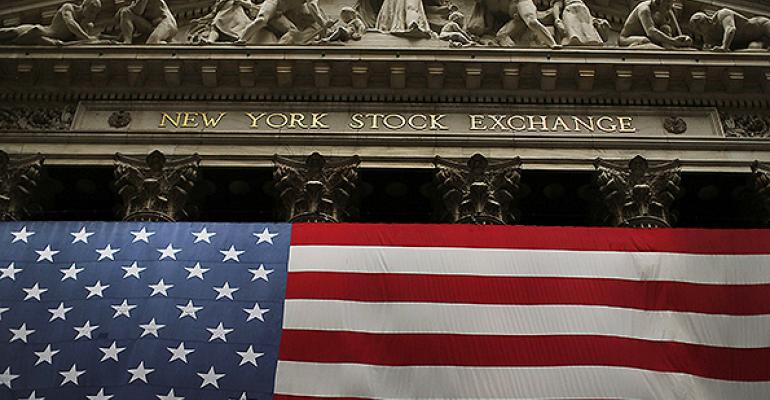By Eric Lam
(Bloomberg) --North Korea nuclear tensions, a crackdown on debt in China, confusion over U.S. policy, elections in Europe: rich ingredients for sending markets into a tizzy.
But it’s not happening. Volatility is at the lowest in decades, and investors are asking what led to the doldrums, with everything from Twitter to Donald Trump getting the blame. There’s also the question of how it will pan out.

The CBOE Volatility Index slid to a 23-year low this week, closing in single digits on Monday and Tuesday for only the 10th and 11th time ever as investors choose to focus on a strong earnings season and signs of economic growth instead of geopolitical uncertainty.
“It’s an uncomfortable calm,” Steven Wieting, Citi Private Bank’s global chief investment strategist, said in a Bloomberg TV interview on May 9. “This is a strengthening earnings environment and there’s been an absence of shocks. That puts you to the point where you get low volatility and then we can think about what happens next.”

Here are some theories for why assets are unmoved:
Social Media
From Snapchat to Facebook, social media gets its fair share of flack. Mark Mobius, executive chairman of Templeton Emerging Markets Group, has piled on, saying in an interview with Bloomberg in Tokyo that the likes of Twitter are giving “false news” a platform, rapidly sowing confusion among investors. Social media is also flooding people with so much information that the impact of events like the firing of FBI Director James Comey is lost.
“If you have all this confusing information, and you don’t know which one is true and which one is false, you say, OK, the heck with it, I won’t do anything,” Mobius said.
The Financial Crisis
Investing has been akin to riding a roller coaster since the 2008 global recession, hurtling from one apparent calamity to the next -- Greece’s debt contagion, the collapse in oil prices, the slowdown in China, Britain’s exit from the Europe Union, the last U.S. election.
Could investors just be a bit numb to it all?
Traders have started to look beyond pessimistic forecasts on major market events that ended up fizzing out, Ethan Harris, global economist at Bank of America Merrill Lynch in New York, said in an interview in March. Furthermore, central banks have shown they will step in to support markets and economies, providing a safety net.
“It’s been a period of repeated shocks and I think people get toughened against that,” Harris said. “It seems like uncertainty is the norm, so you just learn to live with it.”

Donald Trump
The U.S. president’s bobbing and weaving on policy and his legislative misfires have helped assets diverge as his pronouncements impact areas in different ways.
“Since the election, certain sectors like financials and industrials have done well, while others have lagged, and they kind of cancel each other out, resulting in lower volatility,” Matt Friedman, senior vice president of options trading at Convergex Group LLC in New York, s aid in an interview in February.
Hubris
Just when investors think they have it all figured out, the market can bite. So goes the reasoning of Goldman Sachs chief Lloyd Blankfein, who has warned that such low volatility is not the “normal resting state” for markets.
“Every time I get accustomed to low volatility, like we were towards the end of the Greenspan era, and we think we have all the levers under control and there’s low risk in the world and the world is awash with liquidity that pounces on every aberration in the market, something erupts to remind us that the idea anybody is in control of anything is hubris,” he said in a May 9 interview with CNBC.

Index Investing
Another common target among the active manager set is passive, index-based investments that have flattened the market and made life difficult for hedge funds and others.
“You just look and see volatility’s been sucked out of the market,” Andrew Whittaker, managing director with Lazard Ltd., said at a March event hosted by Bloomberg Markets Magazine. “What implications does that have for hedge funds?”
Even Jack Bogle, the founder of Vanguard Group, is concerned about the rise of index investing. Markets would fall into chaos if everyone bought only passively managed funds, he said in an interview with Yahoo! Finance. Ironically, Bogle also created the first index fund for retail investors.
--With assistance from John Ainger.To contact the reporter on this story: Eric Lam in Hong Kong at [email protected] To contact the editors responsible for this story: Christopher Anstey at [email protected] Will Davies, Emma O'Brien

